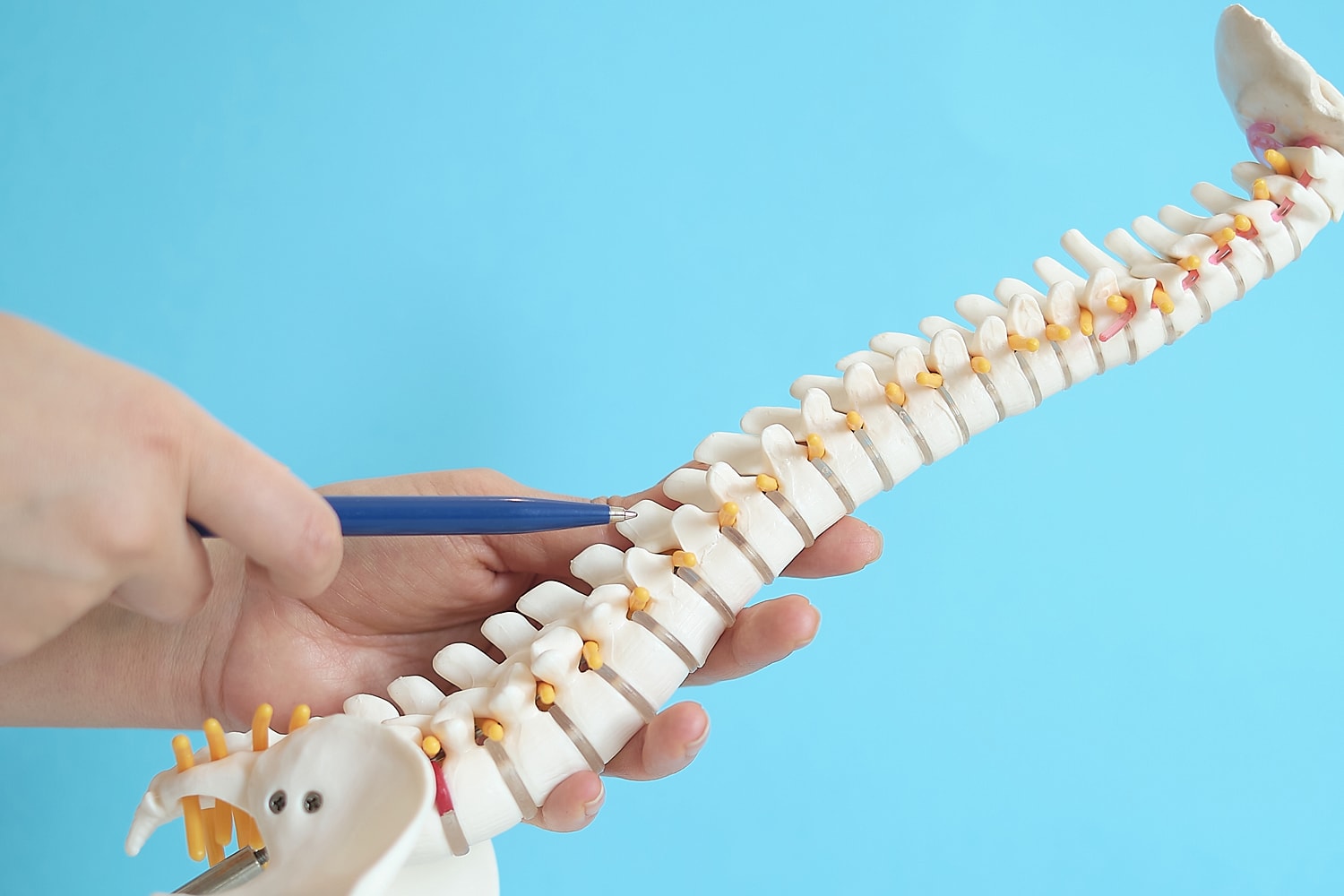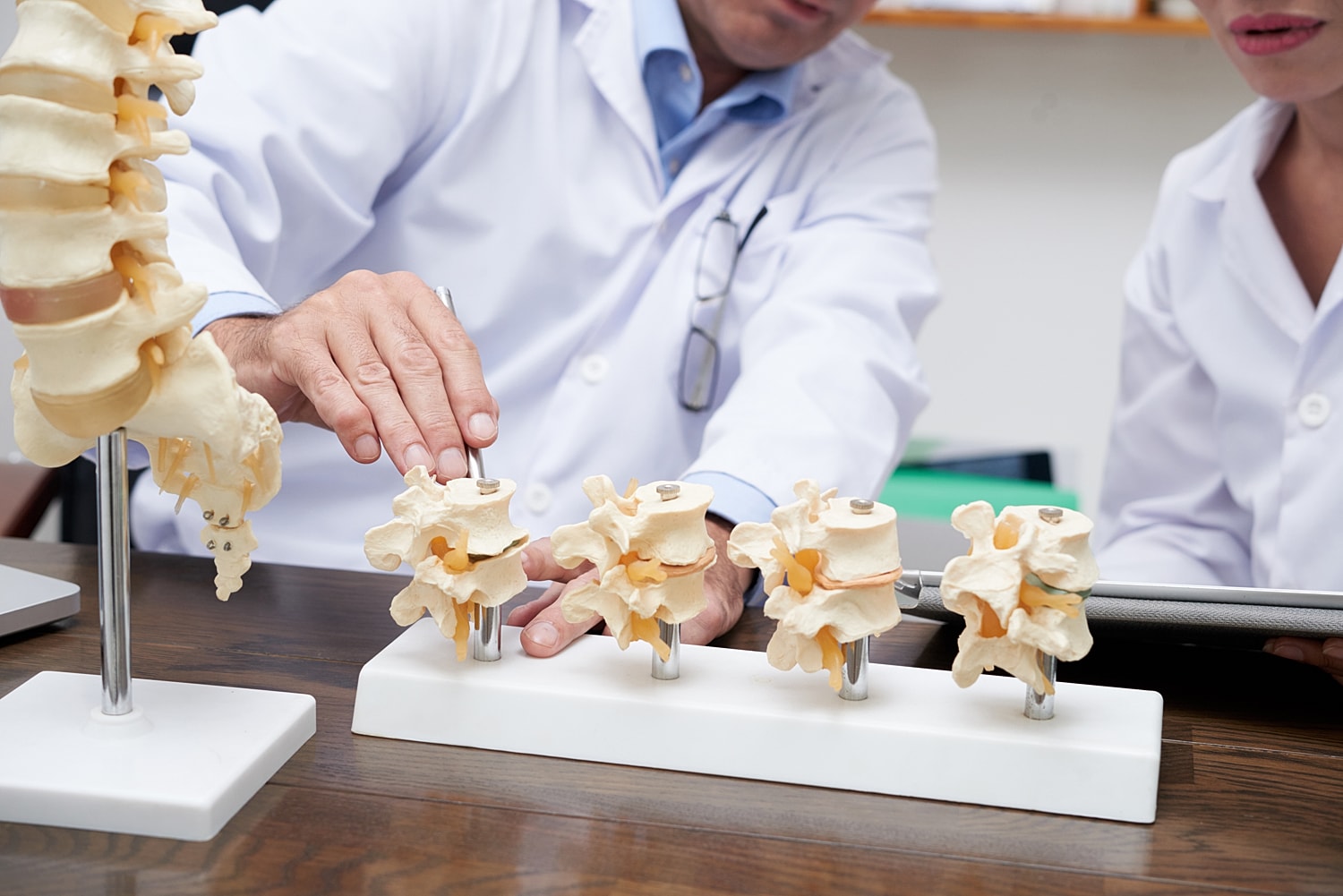
in New York & New Jersey

















Spinal injuries can happen suddenly, but the effects can last long after the initial trauma.
Whether caused by a fall, car accident, sports injury, or workplace incident, spine trauma can lead to lasting pain, nerve symptoms, and limited mobility. And for many patients, even after healing, the pain doesn’t stop. At the Institute for Comprehensive Spine Care, we recognize the complexity of spine trauma and the profound impact it can have on daily life. Led by the distinguished spine specialist, Dr. Gbolahan Okubadejo, MD, FAAOS, we are devoted to offering a broad spectrum of treatment options and personalized care plans to alleviate your pain and restore your mobility.
Spine trauma refers to injuries that affect the spinal column, which is a critical structure that supports the body and houses the spinal cord.
These injuries can be caused by various events such as falls, car accidents, sports injuries, or violent acts, and can range from mild strains to severe damage to the vertebrae, discs, or spinal cord. Depending on the severity and location of the injury, spine trauma can result in symptoms such as pain, limited mobility, numbness, or, in severe cases, paralysis.

The spinal column is a complex structure made up of vertebrae, intervertebral discs, and the spinal cord, and it plays a vital role in movement, support, and the transmission of nerve signals. When trauma occurs, it can disrupt these functions and have a significant impact on a person's quality of life. Early diagnosis and appropriate treatment are crucial in managing spine trauma to prevent long-term complications and facilitate recovery.
The right treatment depends on the severity and type of trauma. At The Institute for Comprehensive Spine Care, we begin with advanced imaging and neurological assessments to understand exactly what structures were affected. Treatment may include:
Every plan is personalized. Some patients heal with non-surgical care, while others benefit from surgical reconstruction or nerve-targeting therapies when pain becomes long-term.

Spinal cord stimulation (SCS) is a treatment for chronic pain that lingers after an injury, even after the structural issues have healed. It’s especially useful when trauma has caused nerve damage or when prior surgeries haven’t resolved the pain.
SCS uses a small implant placed near the spine to deliver gentle electrical pulses to the nerves. These pulses interfere with pain signals before they reach the brain, replacing pain with a mild tingling sensation or, in many cases, blocking them altogether.
The procedure begins with a trial phase, where temporary leads are placed to see if the stimulation provides relief. If successful, a permanent device is implanted under the skin. Spinal cord stimulation is not for everyone, but it may help if you’ve experienced:
SCS does not cure the injury but can dramatically reduce pain and improve quality of life, especially when traditional treatments fall short.
Comprehensive spine trauma care is about more than fixing bones. It’s about helping you move without pain, regain strength, and feel like yourself again.
Benefits of treatment can include:
When needed, spinal cord stimulation offers an added layer of relief for patients dealing with pain that traditional treatments can’t reach.
If you have experienced an injury that affects your spinal column, or if you are experiencing symptoms such as back pain, numbness, weakness, or difficulty moving, spine trauma treatment may be necessary for your recovery. If you'd like to find out if your a candidate for spine trauma treatment NJ & NYC spine surgeon, Dr. Okubadejo, will address that and answer any other questions you have during a consultation. Contact us today!
The type of spine trauma treatment depends on the nature and severity of your injury and your overall health. Whether through physical therapy, medication, or surgical intervention, spine trauma treatment aims to alleviate pain, restore mobility, and improve your quality of life.

Spine trauma treatment recovery timelines vary widely depending on the injury and treatment type. Stable fractures may heal in a few months with bracing and therapy, while surgical cases may require a longer recovery period and structured rehab.
Patients who receive spinal cord stimulation typically return home the same day and resume normal activity within 1-2 weeks. Results build over time as your body adjusts to the device.
Regardless of the treatment path, you’ll have a clear roadmap, consistent follow-up, and guidance every step of the way.

The right treatment—delivered at the right time—can lead to dramatic improvements in quality of life.
Many patients experience:
For patients who qualify, spinal cord stimulation can reduce pain by 50% or more and help avoid additional surgery.
We comprehend the immense impact that spinal trauma can have on your life, and our mission is to empower you to regain control.
Through thorough diagnosis and customized treatment planning, we offer continuous support and guidance throughout your recovery journey. Together, we will formulate a personalized treatment plan that aligns with your specific needs and objectives. Dr. Okubadejo and our dedicated team will accompany you at every stage, ensuring you achieve the best possible health outcomes.
With hundreds of 5-star reviews, Dr. Okubadejo’s reputation speaks to the trust, skill, and personalized attention he brings to every patient’s spine care journey.
★★★★★






Symptoms of spine trauma can vary depending on the type, location, and severity of the injury. Common symptoms include back pain, neck pain, numbness or tingling, weakness, difficulty walking, and loss of bladder or bowel control. It is important to seek medical attention for a proper evaluation and diagnosis.
Spine trauma can occur due to various causes, including motor vehicle accidents, falls, sports injuries, acts of violence, or medical conditions that weaken the bones. These events can exert significant force on the spine, resulting in fractures, dislocations, or other traumatic injuries.
The goal of spine trauma treatment is to alleviate pain, improve function, and enhance overall quality of life. While treatment can significantly reduce symptoms, complete elimination of all symptoms may not always be possible. The extent of symptom relief will depend on the nature of the injury, its severity, and individual factors.
The treatment for spine trauma depends on the type and severity of the injury. Non-surgical treatments may include pain management, bracing, physical therapy, and rehabilitation exercises.
In severe cases or when conservative measures fail, surgical interventions such as spinal fusion, decompression surgery, or vertebroplasty may be necessary. The treatment plan will be personalized based on the specific needs of the individual and the expertise of the healthcare team.
The recovery process for spine trauma varies depending on the nature and extent of the injury. It may involve a combination of medical treatments, rehabilitation exercises, physical therapy, and assistive devices to regain mobility, strength, and function. The duration of recovery can vary greatly and may require long-term monitoring and care.
In many cases, ongoing medical follow-up is recommended after spine trauma treatment. This allows us to monitor progress, address any lingering symptoms or concerns, and adjust the treatment plan as needed. Regular check-ups can help ensure optimal recovery and long-term well-being.


